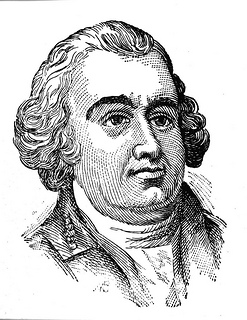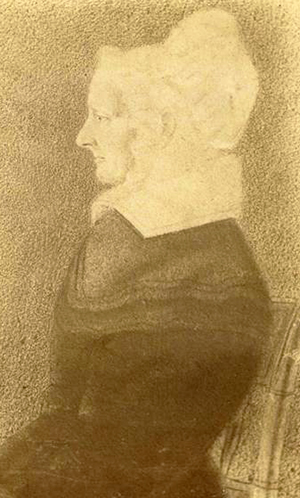ca. 1744–2 Dec. 1783

Thomas Burke, governor and poet, was born in Ireland and grew up in Dublin, probably in a Protestant household. He migrated to the colonies following family quarrels in 1759 or 1760 and settled in Northampton County on the Eastern Shore of Virginia. He first practiced medicine but switched to law, which appeared more lucrative. While in Virginia he began to write poetry, and one of his early poems celebrated the repeal of the Stamp Act. A number of his poems and essays were published in the Virginia newspapers between 1766 and 1768 (they have been more recently collected by Richard Walser and published as The Poems of Governor Thomas Burke of North Carolina [Raleigh: State Department of Archives and History, 1961]). Burke moved to Norfolk in 1769 and in March of the following year married Mary ("Polly") Freeman. As a lawyer he was chiefly engaged in collecting debts for merchants, but his legal activities did include a correspondence with Thomas Jefferson.
In 1772, Burke moved to North Carolina, settling on a farm near Hillsborough. In 1775 he began his political career as a delegate to the second provincial congress. He was reelected to succeeding congresses and chaired the committee to draft a constitution in April 1776. As a result of his obvious talents, he was elected to the Continental Congress, where he served from 1777 until 1781. Almost alone among the members of Congress, he perceived the conflict between the continental establishment and the sovereignty of his state, which he vigorously asserted. In the debate over the Articles of Confederation in 1777, Burke introduced a resolution guaranteeing those powers to the states that were not explicitly granted to the Confederation. This safeguard was incorporated into the Articles and later was the basis for the Tenth Amendment to the federal Constitution. With the British invasion of the South, however, Burke became increasingly nationalistic and participated in the campaign to establish import duties in 1780 and 1781.

In June of 1781, Burke was elected governor of war-ravaged North Carolina, and in October he was captured at Hillsborough by the Tory raider David Fanning. After he was paroled by the enemy to James Island near Charles Town, his life was threatened by Tory refugees and he was forced to flee. After his return to North Carolina, he resumed his duties as governor, setting off an undercurrent of criticism, especially among officers of the military who felt that his parole violation was an inexcusable breach of honor.
Burke left office in April of 1782, disillusioned with the revolutionary experiment in republicanism and favoring a more aristocratic system. Burdened with debts from his public service and weakened by his ordeal as a captive, he died and was buried on his farm near Hillsborough. He was survived by an infant daughter, Mary Williams Burke.